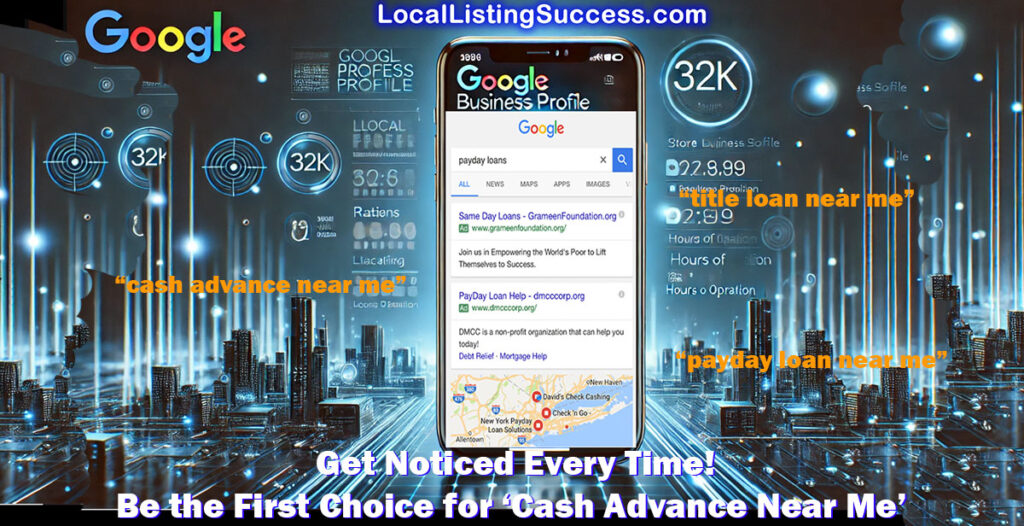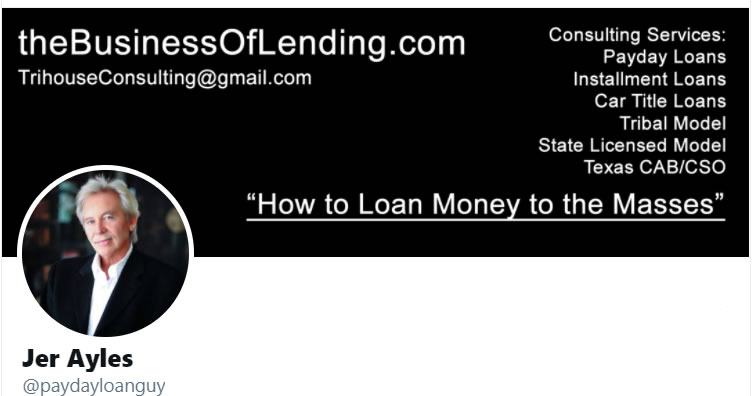Starting a car title loan business can be a lucrative venture, but it requires careful planning and execution. This type of business involves lending money to borrowers who use their car titles as collateral. If the borrower defaults on the loan, the lender can repossess the car and sell it to recover their losses.
Before starting a car title loan business, it’s important to conduct a thorough market analysis to determine if there is demand for this type of service in your area. You’ll also need to develop a solid business model, including a plan for legal and regulatory compliance, marketing and sales strategies, and an operational plan.
Key Takeaways
- Conduct a thorough market analysis before starting a car title loan business.
- Develop a solid business model that includes legal and regulatory compliance, marketing and sales strategies, and an operational plan.
- Be prepared to repossess and sell vehicles if borrowers default on their loans.
Market Analysis
Industry Overview
Starting a car title loan business requires an understanding of the industry and the market. The car title loan industry is a growing market in the United States, with more and more people turning to these types of loans due to their ease of access and quick approval times. According to a market research report by IBIS World, the car title loan industry has a revenue of $4.2 billion and is expected to grow at a rate of 3.3% annually.
Target Demographics
The target demographic for a car title loan business is typically people who need quick access to cash but do not have good credit or do not want to go through the traditional loan application process. These individuals may have an urgent need for cash due to an unexpected expense or emergency, and they may not have time to wait for a traditional loan approval process. The target demographic can include people of all ages and backgrounds, but it is important to understand the local market and tailor marketing efforts accordingly.
Competitor Assessment
It is important to assess the competition in the local market to determine the viability of a car title loan business startup. This can be done by conducting market research and analyzing the competition’s strengths and weaknesses. Some factors to consider when assessing the competition include interest rates, loan terms, fees, and customer service. By understanding the competition, you can identify opportunities to differentiate your business and provide a unique value proposition to your target market.
In conclusion, understanding the car title loan industry and the local market is crucial for a successful startup. By conducting thorough market research and competitor analysis, you can identify opportunities to differentiate your business and provide a valuable service to your target demographic.
Business Model
Starting a Car Title Loan Business requires a solid business model that outlines your loan products, revenue streams, and risk management strategies.
Loan Products and Terms
Your loan products and terms will determine the types of customers you attract and the level of risk you take on. Car Title Loans typically offer short-term loans with high-interest rates. Your loan products should be tailored to your target market and their needs.
Consider offering flexible repayment terms, such as weekly or monthly payments, to make it easier for customers to repay their loans. Be transparent about the fees and interest rates associated with your loans to avoid any confusion or misunderstandings.
Revenue Streams
Your revenue streams will come from the interest and fees charged on your loans. To maximize your revenue, you may consider offering additional services, such as insurance or roadside assistance.
It’s important to balance your revenue goals with the needs of your customers. You want to provide a valuable service to your customers while also generating a profit for your business.
Risk Management
Car Title Loans come with a high level of risk, so it’s important to have a solid risk management strategy in place. This includes conducting thorough credit checks on potential borrowers, verifying their income and employment, and assessing the value of their vehicle.
You should also have a plan in place for handling delinquent payments and repossessions. It’s important to follow all applicable laws and regulations governing Car Title Loans to avoid any legal issues.
In summary, a successful Car Title Loan Business requires a well-designed business model that includes a variety of loan products, multiple revenue streams, and a strong risk management strategy. By carefully balancing these factors, you can build a profitable business while also providing a valuable service to your customers.
Legal and Regulatory Compliance
Starting a car title loan business involves complying with various legal and regulatory requirements. Failure to comply with these requirements can result in hefty fines, legal action, and reputational damage. In this section, we’ll discuss some of the key legal and regulatory compliance considerations you need to keep in mind when starting a car title loan business.
Licensing Requirements
To start a car title loan business, you’ll need to obtain the necessary licenses and permits from your state and local government. Licensing requirements vary from state to state, so it’s important to research the requirements in your area. Some states require car title loan businesses to obtain a specific license, while others may require a general business license. You may also need to obtain a bond or insurance to protect your customers.
Federal and State Regulations
In addition to licensing requirements, car title loan businesses must comply with federal and state regulations. Federal regulations include the Truth in Lending Act (TILA) and the Fair Debt Collection Practices Act (FDCPA). These regulations govern how lenders can advertise, disclose loan terms, and collect debts. State regulations cover a range of issues, including interest rates, loan amounts, and repayment terms. You should consult with an attorney or regulatory compliance expert to ensure that your business is in compliance with all applicable regulations.
Insurance and Liability
Car title loan businesses face a range of potential liabilities, including defaulting customers, accidents involving loaned vehicles, and legal action from customers or regulatory agencies. To protect your business, you should obtain liability insurance that covers these risks. You may also want to consider obtaining errors and omissions (E&O) insurance to protect against claims of negligence or wrongdoing.
In summary, starting a car title loan business requires careful attention to legal and regulatory compliance. By obtaining the necessary licenses, complying with federal and state regulations, and obtaining insurance, you can mitigate your risks and protect your business.
Marketing and Sales Strategies
Starting a car title loan business requires a solid marketing and sales strategy to attract customers and generate revenue. Below are some key strategies to consider:
Branding and Positioning
Creating a strong brand identity and positioning your business in the market is crucial to attract and retain customers. Develop a unique brand name, logo, and tagline that reflects your business values and resonates with your target audience. Highlight your competitive advantages, such as low interest rates, flexible repayment options, or quick approval times, to differentiate yourself from other lenders.
Online Marketing
In today’s digital age, having a strong online presence is essential to reach potential customers. Develop a user-friendly website that provides clear information about your services, rates, and terms. Optimize your website for search engines to improve your visibility in search results. Use social media platforms, such as Facebook, Twitter, and Instagram, to engage with customers, promote your business, and share customer testimonials.
Sales Channels
Identifying the right sales channels is crucial to reach your target audience and generate revenue. Consider partnering with car dealerships, auto repair shops, or towing companies to offer financing options to their customers. Attend local events, such as car shows or community fairs, to promote your business and attract potential customers. Develop a referral program to incentivize existing customers to refer new customers to your business.
By implementing these marketing and sales strategies, you can increase your visibility, attract potential customers, and generate revenue for your car title loan business.
Operational Plan
When starting a car title loan business, a solid operational plan is crucial for success. This plan should include details on location and facilities, staffing and training, and customer service.
Location and Facilities
Choosing the right location for your car title loan business is essential. You want to find a location that is visible and easily accessible to potential customers. Consider the demographics of the area, including the population, income level, and competition. You also want to ensure that the facility meets all legal and safety requirements.
Staffing and Training
Your employees are the backbone of your car title loan business. It is important to hire staff who are knowledgeable, reliable, and customer-focused. Make sure to provide thorough training on all aspects of the business, including loan processing, customer service, and collection practices. Ongoing training and professional development opportunities can help keep your staff engaged and motivated.
Customer Service
Providing excellent customer service is critical for building a loyal customer base. Make sure your staff is trained to handle customer inquiries and complaints in a professional and timely manner. Consider implementing customer feedback surveys to gather insights and improve the customer experience. Building strong relationships with your customers can lead to repeat business and positive word-of-mouth referrals.
In summary, a well-planned operational strategy is essential for the success of your car title loan business. By focusing on location and facilities, staffing and training, and customer service, you can build a strong foundation for growth and profitability.
Frequently Asked Questions
What are the initial steps to starting a car title loan business?
Starting a car title loan business requires thorough research and planning. The first step is to create a business plan, which includes details such as the target market, the loan amount, interest rate, and repayment terms. You will also need to decide on a business name, register the business, and obtain the necessary licenses and permits. Additionally, you will need to set up an office, hire employees, and invest in marketing and advertising.
What are the legal requirements for establishing a title loan company?
The legal requirements for establishing a title loan company vary by state. However, in general, you will need to obtain a license from the state regulatory agency that oversees lending activities. You will also need to comply with state and federal lending laws, such as the Truth in Lending Act and the Fair Debt Collection Practices Act.
How can one secure funding for a car title loan business startup?
There are several ways to secure funding for a car title loan business startup. You can apply for a business loan from a bank or credit union, seek investment from venture capitalists or angel investors, or use personal savings or funds from friends and family. Additionally, some states require title loan companies to have a certain amount of capital in reserve before they can start lending.
What is the average profit margin for a title loan business?
The average profit margin for a title loan business varies depending on several factors, such as the interest rate, the loan amount, and the repayment terms. However, the profit margin can be significant, with some companies reporting margins of up to 300 percent.
What are the benefits of operating a title loan franchise versus an independent title loan company?
Operating a title loan franchise can offer several benefits, such as brand recognition, marketing support, and established processes and procedures. On the other hand, operating an independent title loan company can offer more flexibility and control over the business operations.
How does one effectively market a car title loan business to attract customers?
To effectively market a car title loan business, you can use a variety of strategies, such as online advertising, direct mail campaigns, and referral programs. You can also partner with local businesses, such as car dealerships and repair shops, to attract customers. Additionally, you can offer promotions and discounts to incentivize new customers to use your services.
















